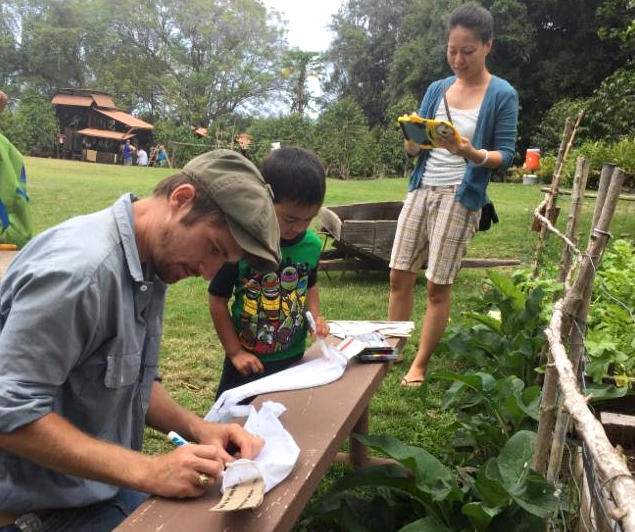Kona Coffee Living History Farm to Celebrate Children’s Day

childrens day hawaii, childrens day kona, boys day kona, Kodomo no Hi, Kona Historical Society’s Kona Coffee Living History Farm, Kona Historical Society, Kona Coffee Living History Farm Children’s Day koi photo.
Visitors to Kona Historical Society’s Kona Coffee Living History Farm in Captain Cook on Friday will have the opportunity to participate first-hand in some of Kodomo no Hi’s beloved traditions.
The annual Kodomo no Hi celebration ( Children’s Day) on Friday, May 5 is a national holiday and one of Japan’s major spring festivals.
Kodomo no Hi is a special time honoring children for their individual strengths and wishing them happiness.
The award-winning historic farm tells the stories of Kona’s coffee pioneers from 1926 to 1945 and early Japanese immigrants. It is the only living history coffee museum in the U.S.
Children’s Day was originally known as Tango no Sekku and celebrated boys. It was known as Boys’ Day until 1948, when it was officially changed to fete the health and growth of all children.

childrens day hawaii, childrens day kona, boys day kona, Kodomo no Hi, Kona Historical Society’s Kona Coffee Living History Farm, Kona Historical Society, Kona Coffee Living History Farm Children’s Day koi photo.
A traditional symbol for this festival is the koi, or carp. These spirited fish are revered for their determination in swimming upstream and through powerful waterfalls. On May 5, koi represent courage and strength for children.
Kona Historical Society staff will display koinobori, or carp-shaped flags, near the farmhouse. Visitors can also make their own mini koinobori.
Growing up in South Kona, Kona Historical Society Interpreter Pauline Nishida-Miller remembers Boy’s Day as a festive time, with a lot of colorful koinobori seen in the area and flown on poles outside buildings and houses, to bring luck and good fortune to children inside.
Per tradition, the number of carp hanging on the poles represent the number of children in the associated family.
On Friday, the public can also help Kona Historical Society staff prepare mochi—smooth white sweet glutinous rice cakes often associated with holidays.
The Kona Coffee Living History Farm is located at 82-6199 Mamalahoa Highway in Captain Cook, near mile marker 110. It is open from 10 a.m. to 2 p.m. weekdays.
For more information, call Kona Historical Society at (808) 323-3222 or visit www.konahistorical.org.
Kona Historical Society is a community-based, 501(c)(3) nonprofit organization dedicated to collecting, preserving and sharing the history of the Kona districts and their rich cultural heritage within Hawai‘i. The society celebrates Kodomo no Hi because it’s an opportunity to reflect on the rich, unique traditions the Japanese brought to Hawai‘i.















